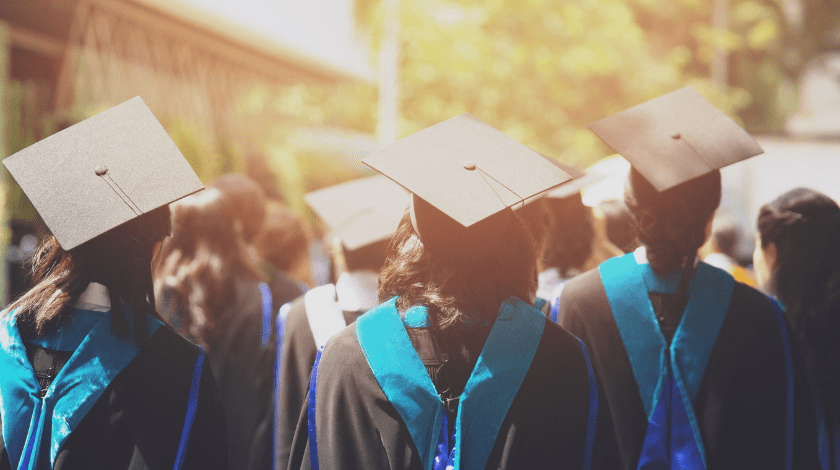News and Announcements
The Restoration of Pell Grant Eligibility: A Year of Transformation
Published Date
- July 16, 2024

By Kenia Miranda Verdugo
In July 2023, the U.S. Department of Education reinstated Pell Grant eligibility for incarcerated students, a monumental decision in higher education. By reversing a 1994 ban, the Department of Education aimed to address educational disparities and offer second chances to those behind bars. Now, one year later, the impact of this policy shift is becoming evident, transforming lives and reshaping the national landscape.
Before this change, limited access to education left many incarcerated individuals without the tools needed for successful reintegration into society. Today, these individuals are enrolling in courses ranging from vocational training to associate and bachelor’s degree programs. Educational institutions across the country have partnered with correctional facilities to provide a diverse array of programs, tailored to meet the unique needs of incarcerated students.
How Pell Grant Reinstatement Helps Incarcerated Students
The return of Pell Grant eligibility has led to numerous positive outcomes, both for incarcerated students and society at large:
- Reduced Recidivism Rates: Studies have consistently shown that education significantly reduces recidivism. For example, the Vera Institute found that iIncarcerated individuals who participate in educational programs are 48% less likely to return to prison after their release. With access to Pell Grants, more incarcerated individuals are now able to pursue higher education, leading to lower crime rates and safer communities.
- Enhanced Employment Prospects: Education equips individuals with the skills and knowledge needed to secure gainful employment. Incarcerated students are finding better job opportunities upon release, which not only benefits them personally but also contributes to the economy by reducing unemployment and increasing tax revenues. As California Competes notes, “incarcerated adults’ access to higher education in prison lowers the odds of recidivating by 43 percent and increases the likelihood of employment by 13 percent, while saving $5 for every $1 spent.”
- Improved Prison Environments: Educational programs have a positive impact on the prison environment. Incarcerated individuals engaged in learning are less likely to engage in disruptive behavior, leading to a safer and more constructive atmosphere for both incarcerated individuals and staff, as the U.S. Department of Justice reports.
- Empowerment and Self-Worth: Education also instills a sense of purpose and self-worth in incarcerated individuals. The opportunity to learn and grow academically provides them with hope for the future and the motivation to turn their lives around. As Mynor Mendez, Academic Program Assistant at Homeboy Industries, shared, “My goal is to prevent kids from having to go through the traumatic experiences that the immigration and judicial system put me through—education is my path to fulfill my commitment and goal.”
Challenges and the Road Ahead to Enhance Education in Prison
While the reinstatement of Pell Grant eligibility has brought about significant positive changes, challenges remain. Ensuring that educational programs are accessible to all eligible incarcerated individuals, regardless of their location, is a logistical hurdle. Additionally, addressing the stigma associated with hiring formerly incarcerated individuals requires ongoing efforts from employers and policymakers.
A recent Vera report stated that California, while advancing progressively in this area, is falling behind in academic and career advising. In practice, this means that academic and career advising is not offered on the inside in a way that can compare to what on-campus students receive.
Looking ahead, it is crucial to continue monitoring and evaluating the impact of Pell Grants on incarcerated students. Expanding program offerings, increasing awareness about the benefits of prison education, and fostering partnerships between correctional facilities and educational institutions will be key to sustaining and enhancing the progress made.
A Brighter Future for All Students
The reinstatement of Pell Grants for incarcerated students marks a pivotal moment in the nation’s journey toward a more equitable and just society. One year in, the transformative power of education is evident in the lives of countless individuals who now have the chance to rewrite their stories. As we celebrate these successes, let us also commit to addressing the challenges ahead, ensuring that education remains a beacon of hope and opportunity for all, regardless of their circumstances.
Michelson 20MM is a private, nonprofit foundation working toward equity for underserved and historically underrepresented communities by expanding access to educational and employment opportunities, increasing affordability of educational programs, and ensuring the necessary supports are in place for individuals to thrive. To do so, we work in the following verticals: Digital Equity, Intellectual Property, Smart Justice, Student Basic Needs, and Open Educational Resources (OER). Co-chaired and funded by Alya and Gary Michelson, Michelson 20MM is part of the Michelson Philanthropies network of foundations.
To sign up for our newsletter, click here.